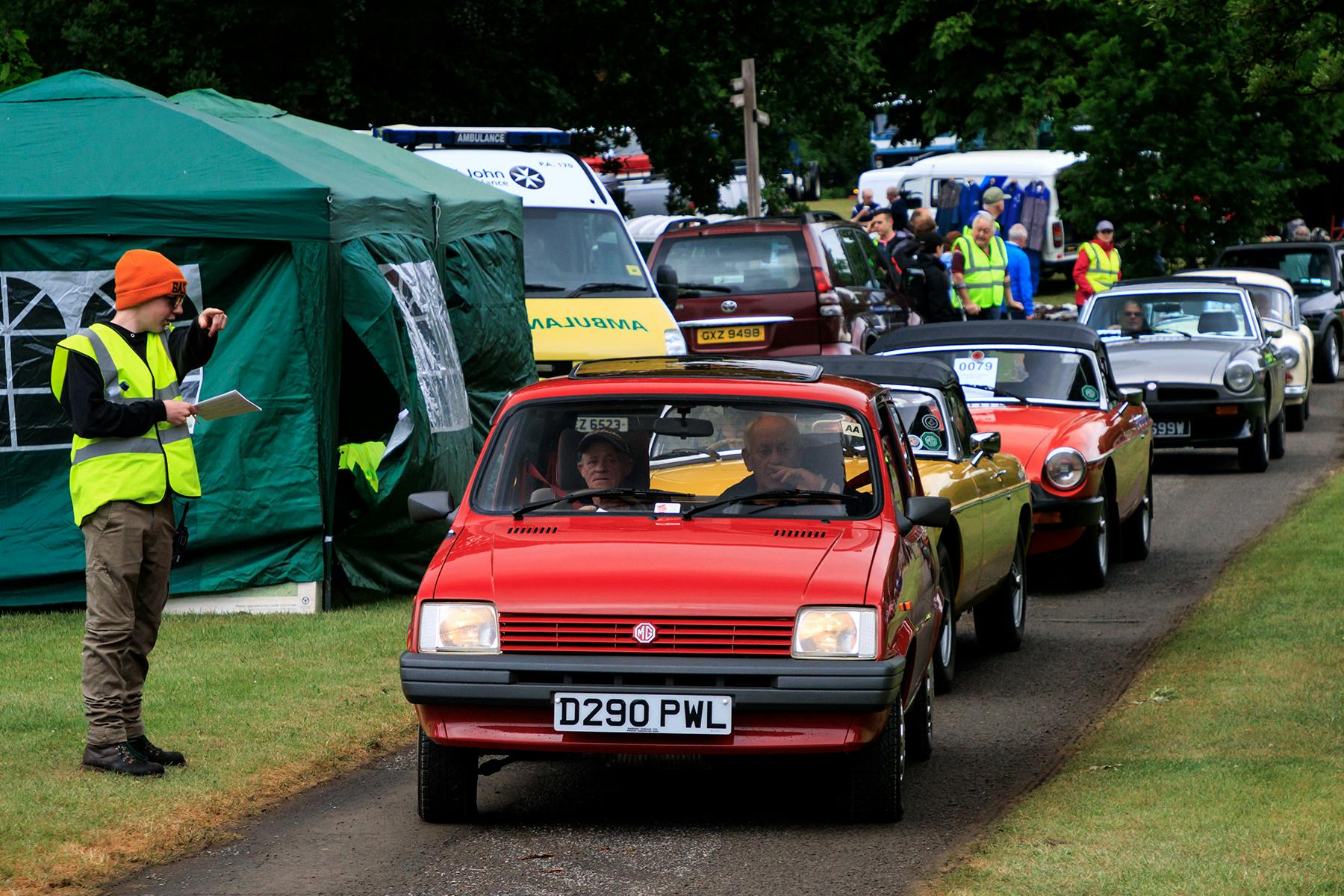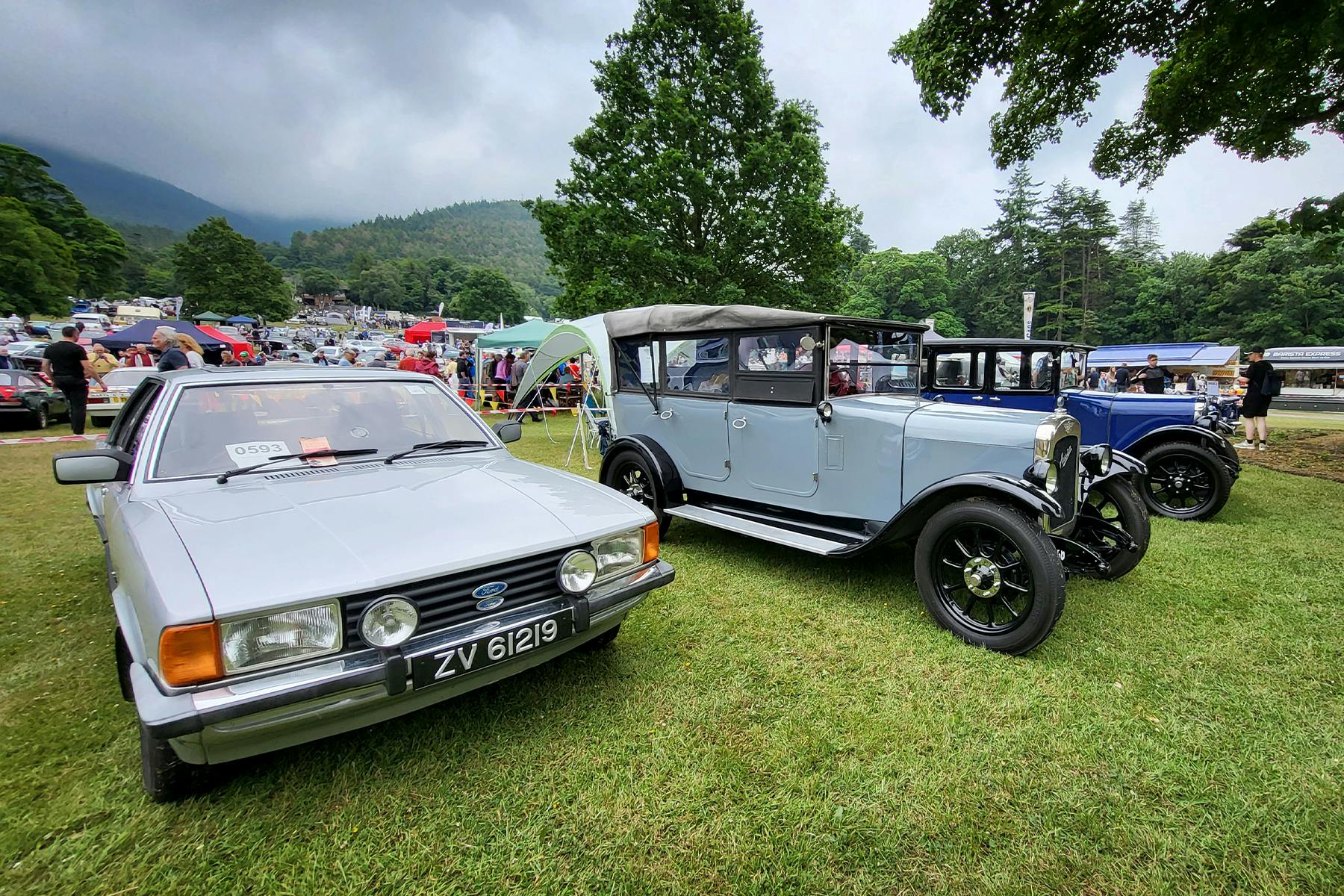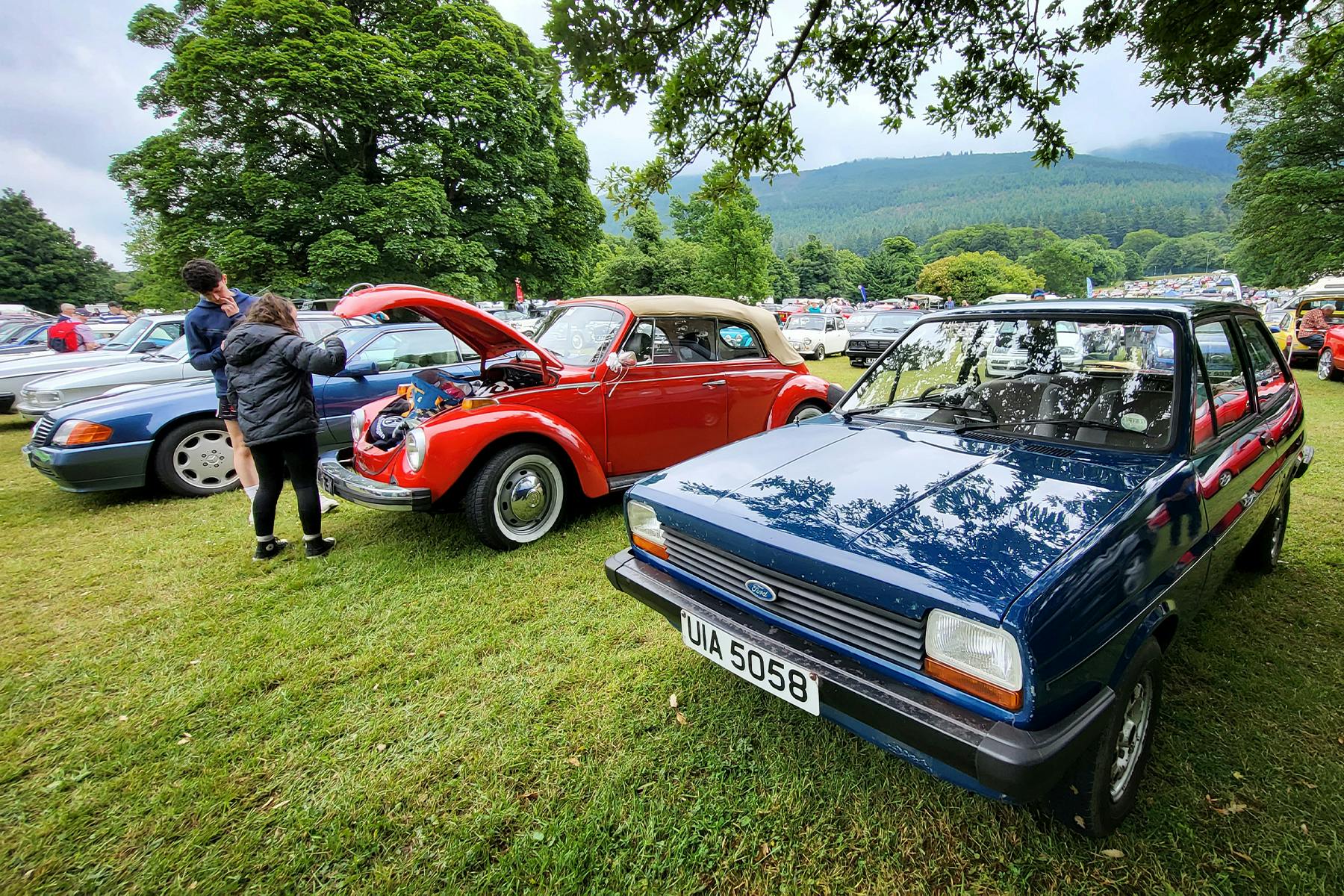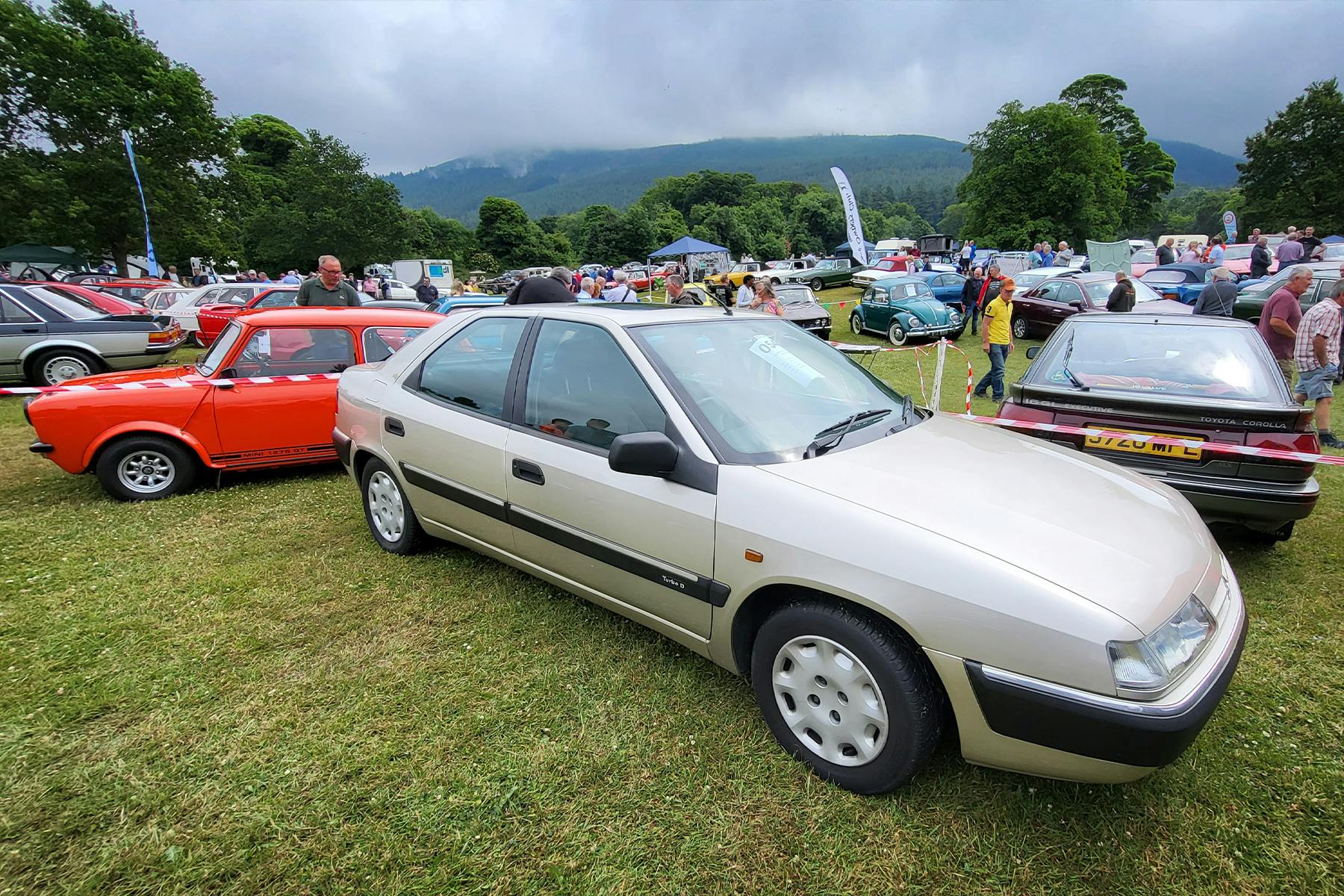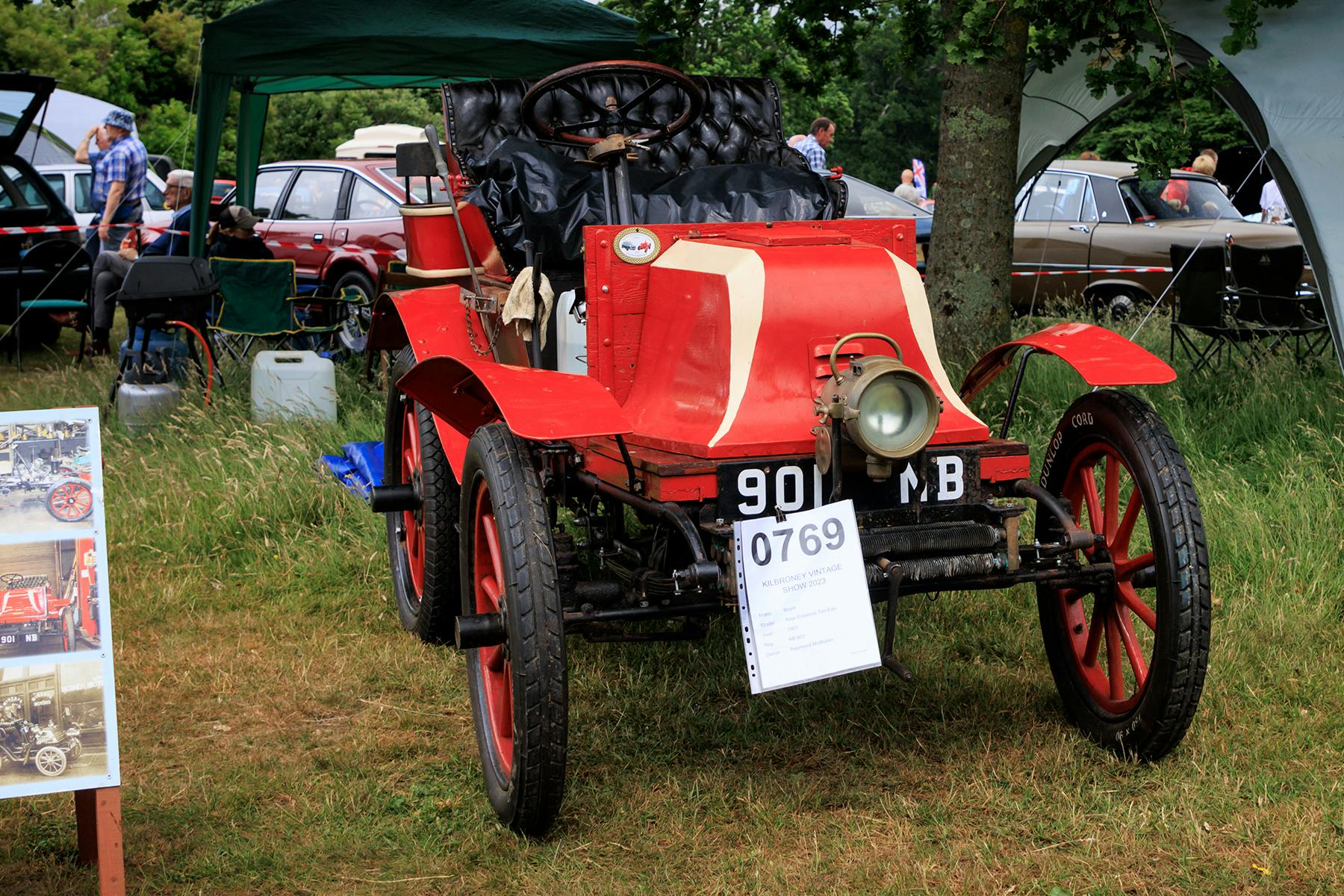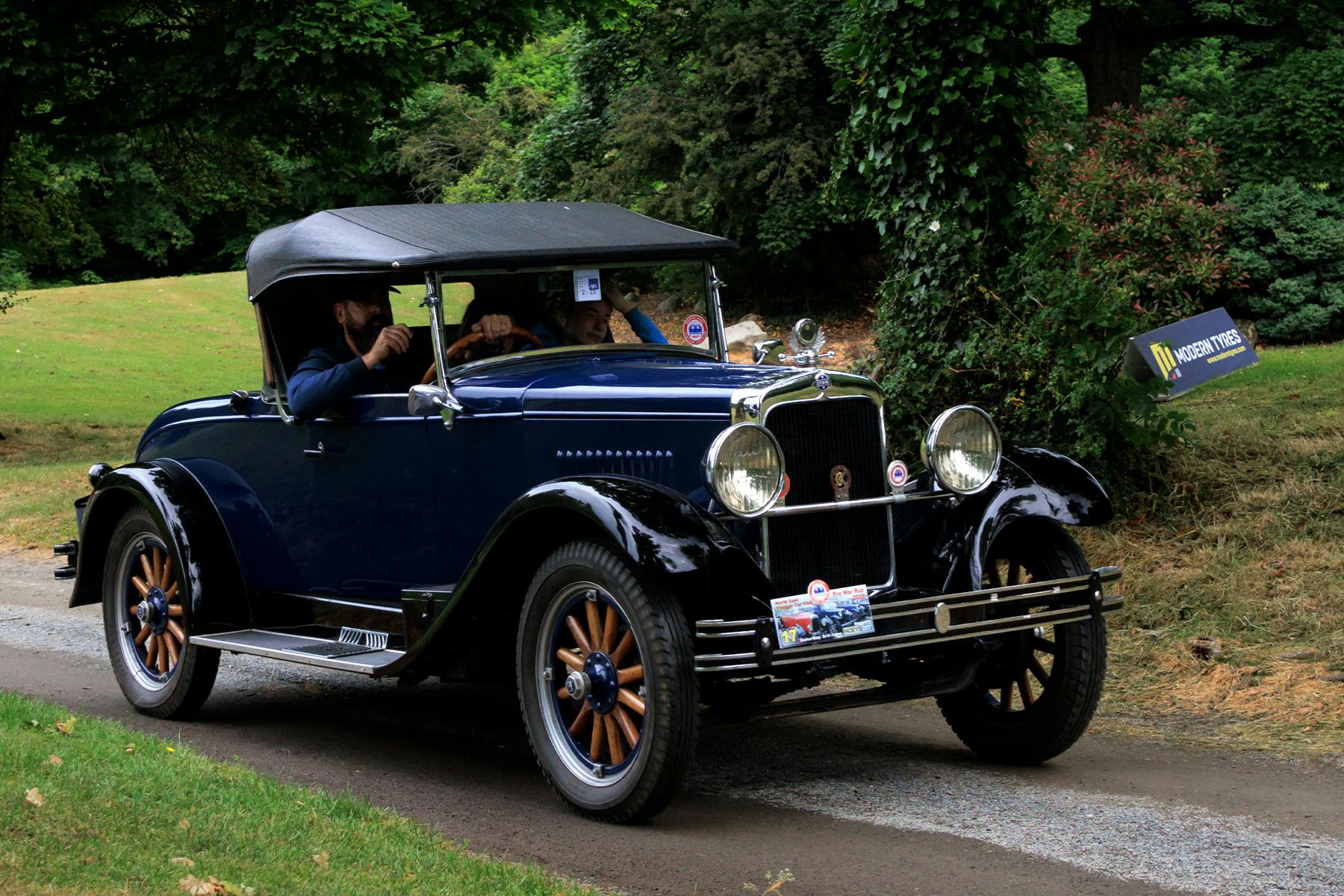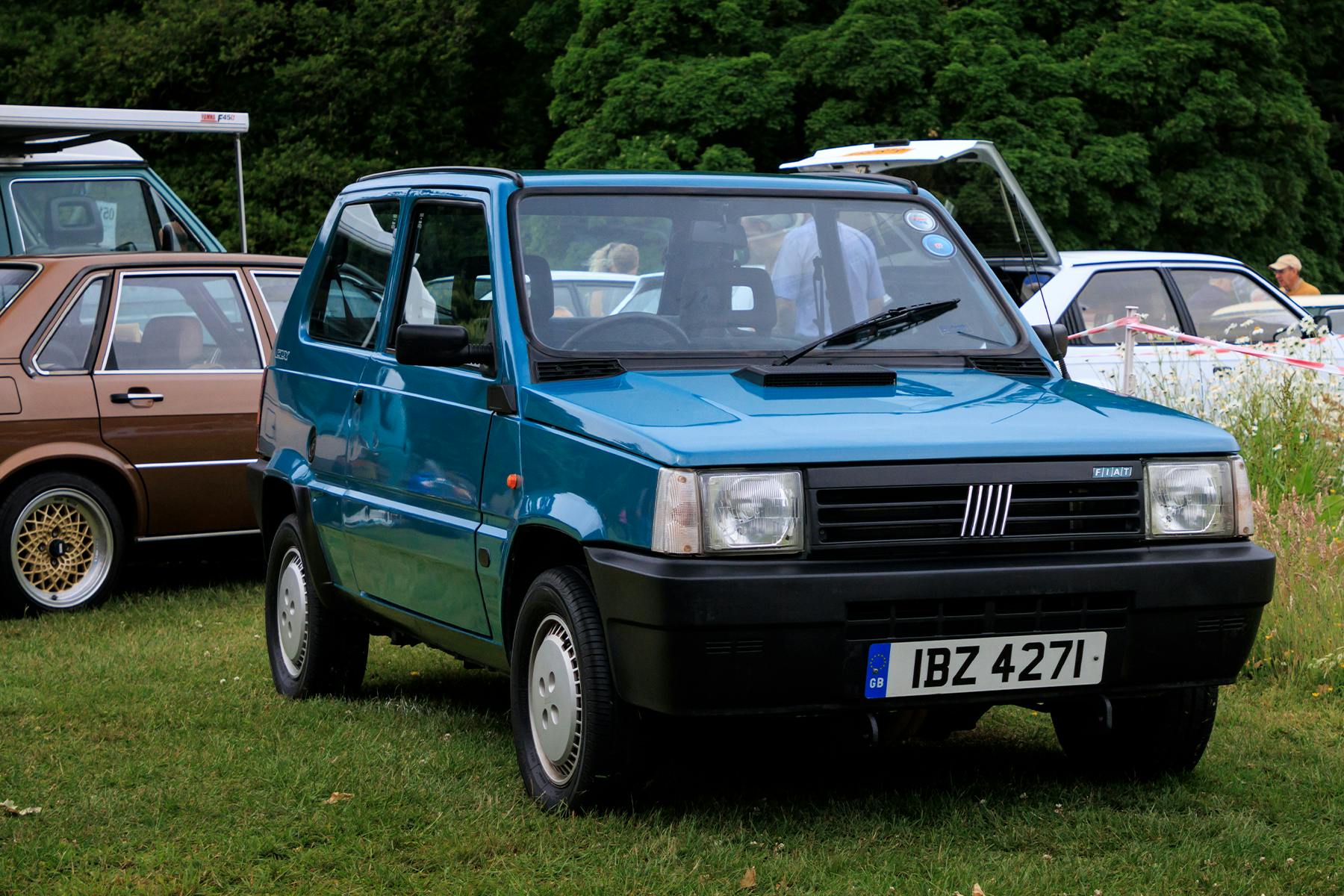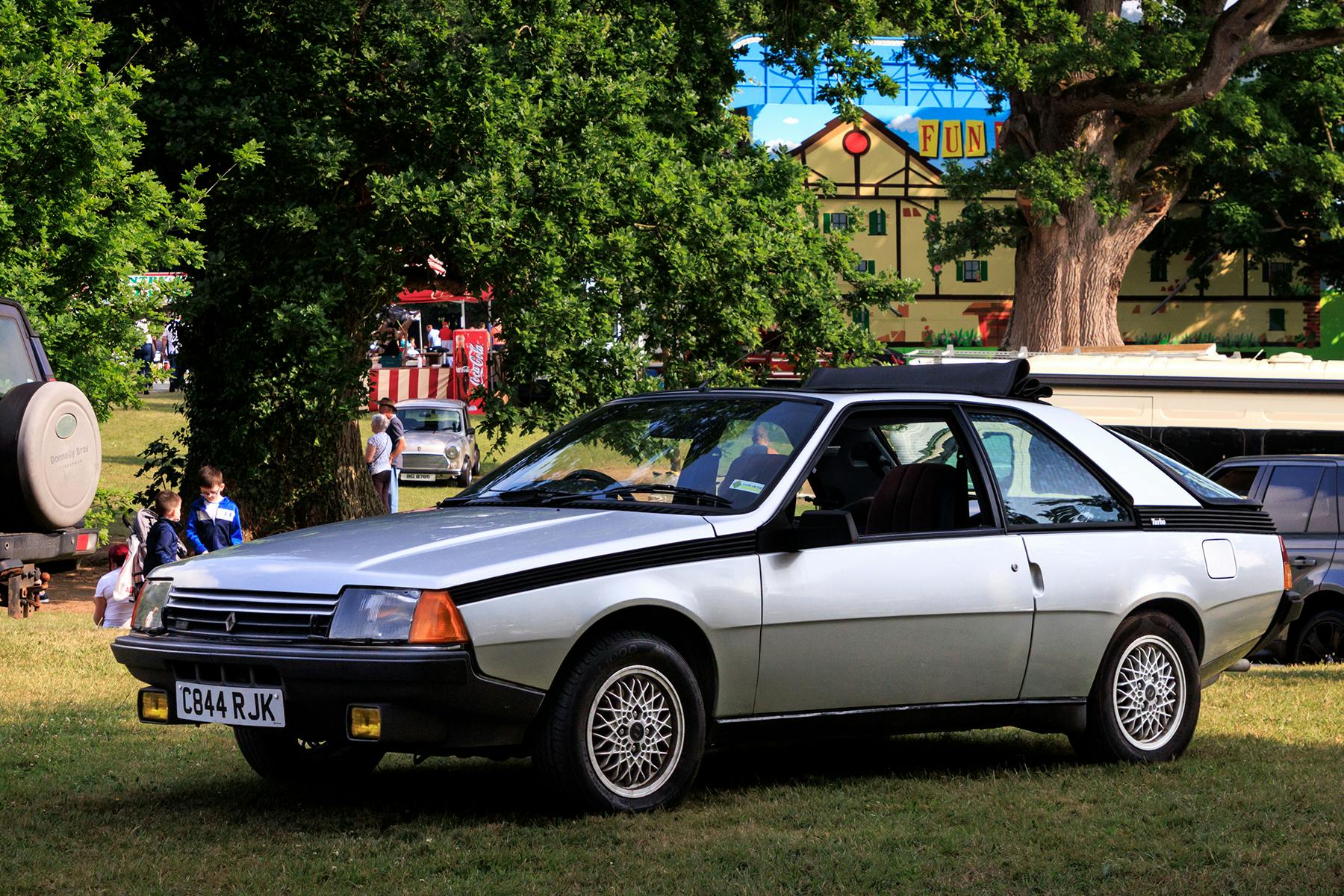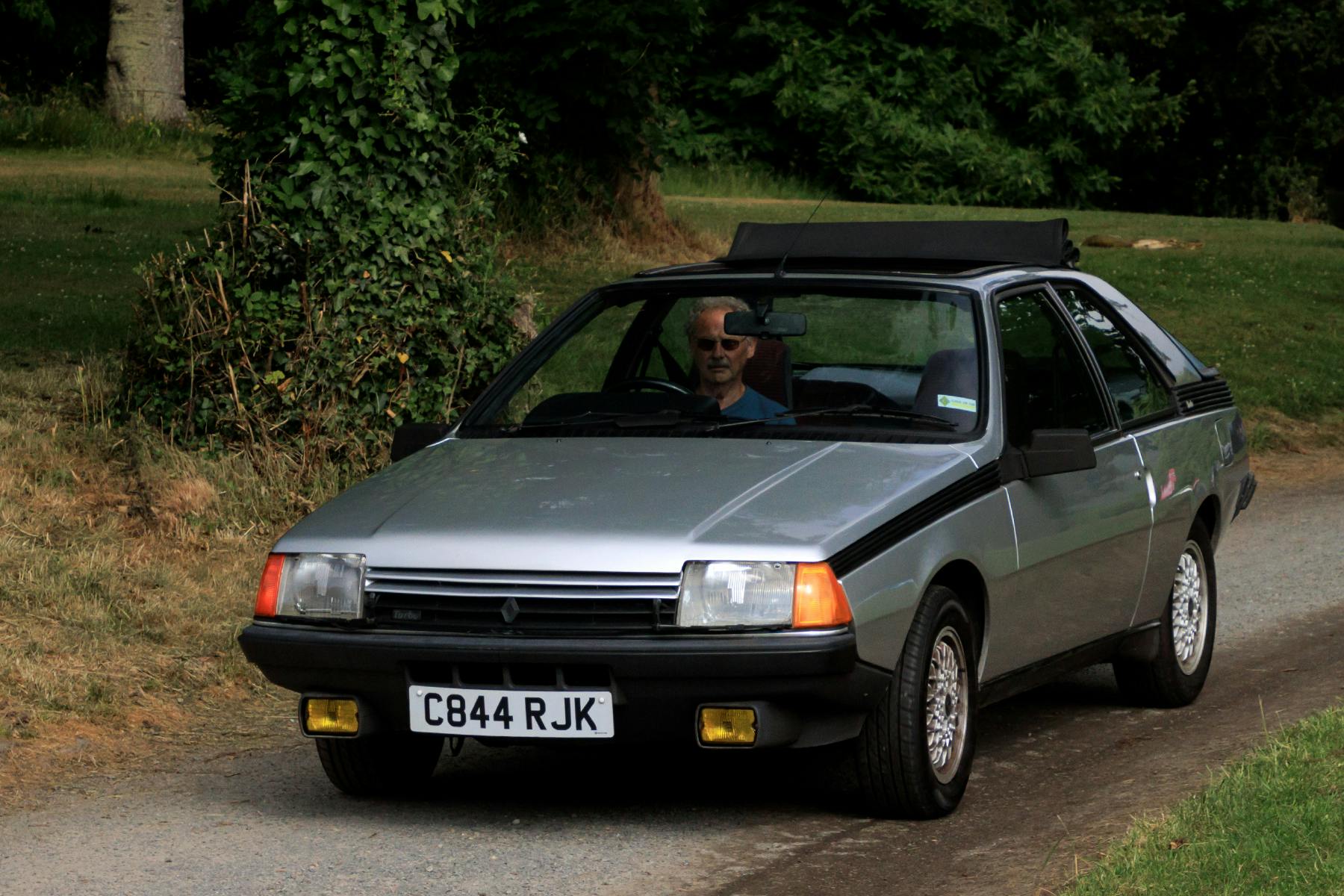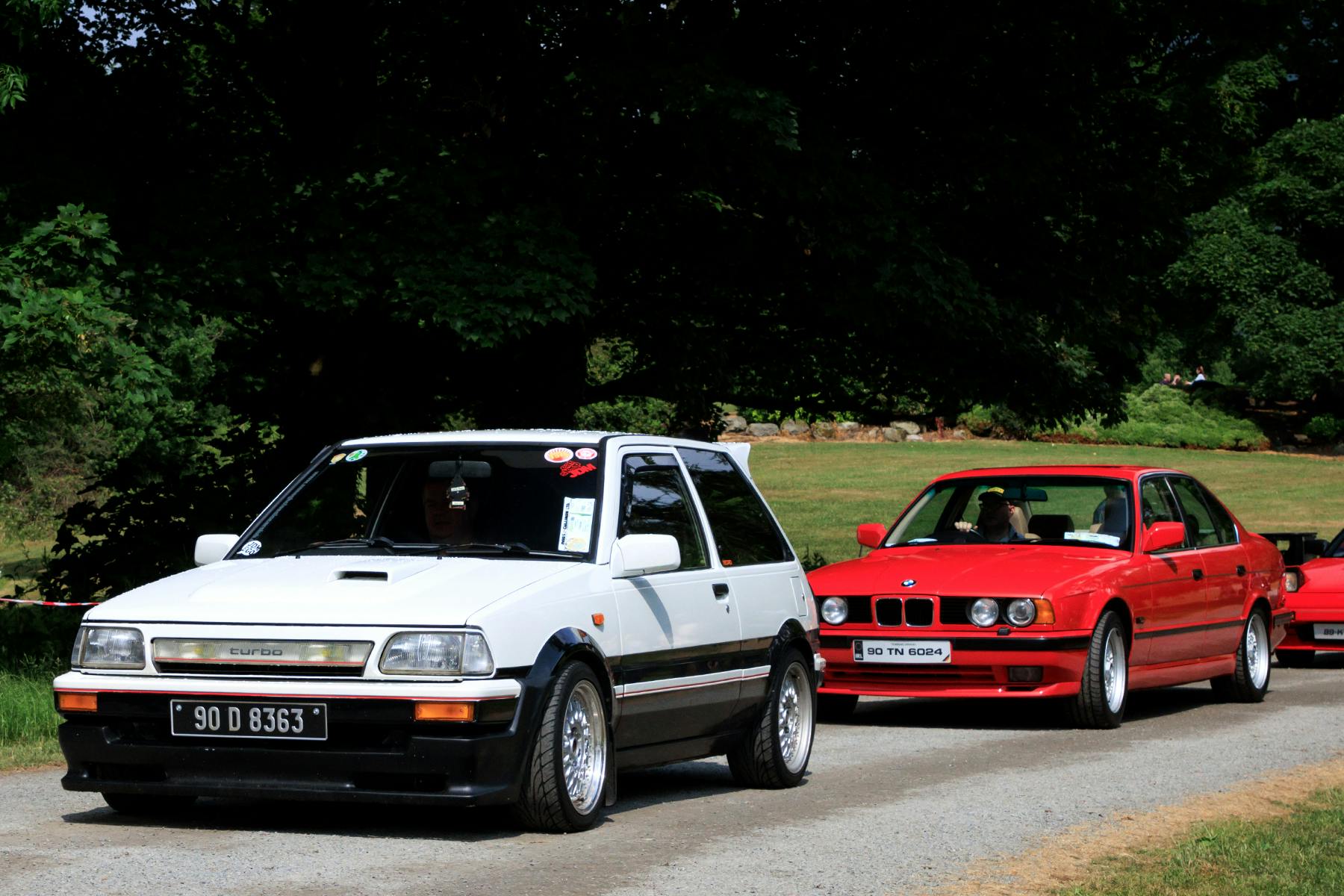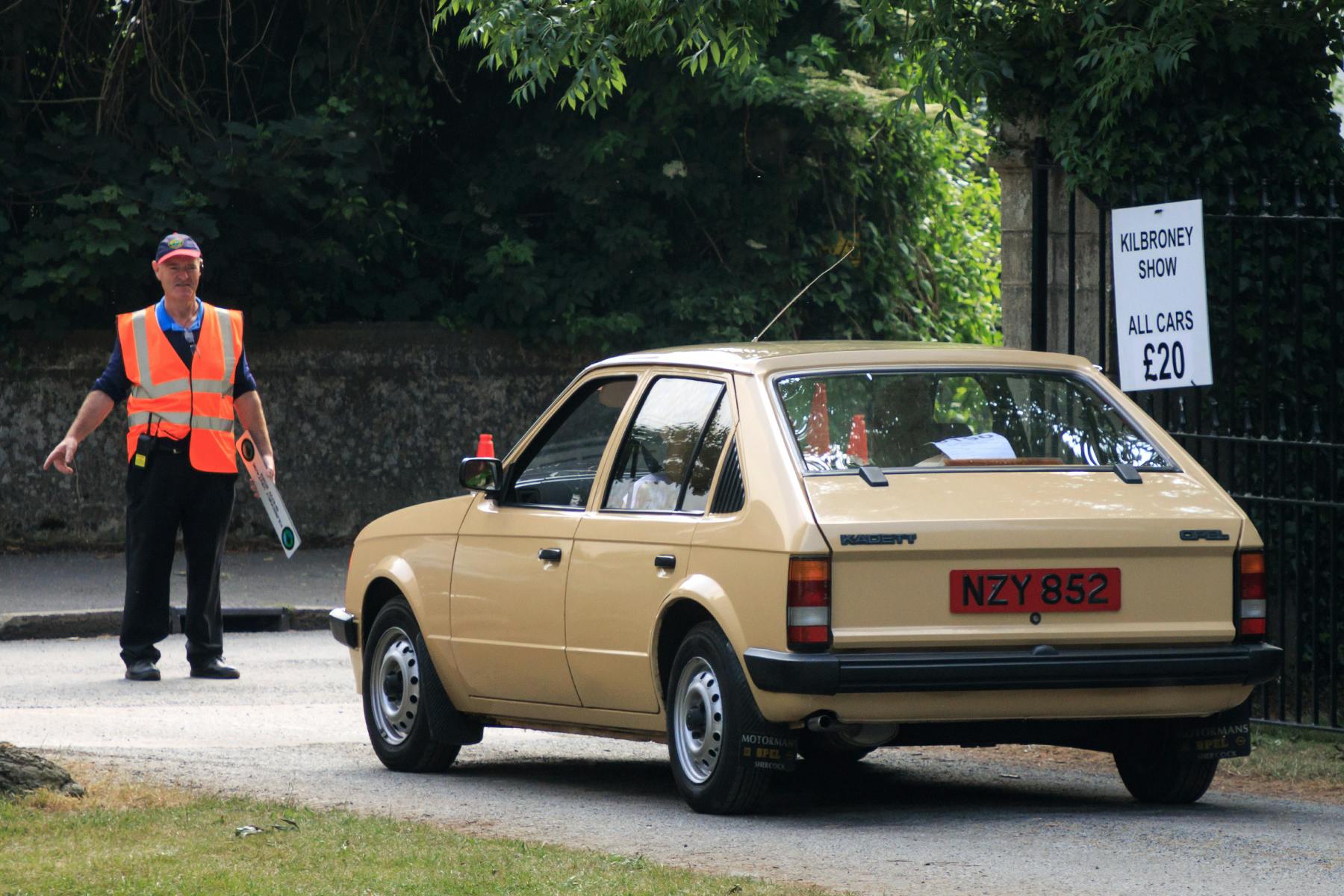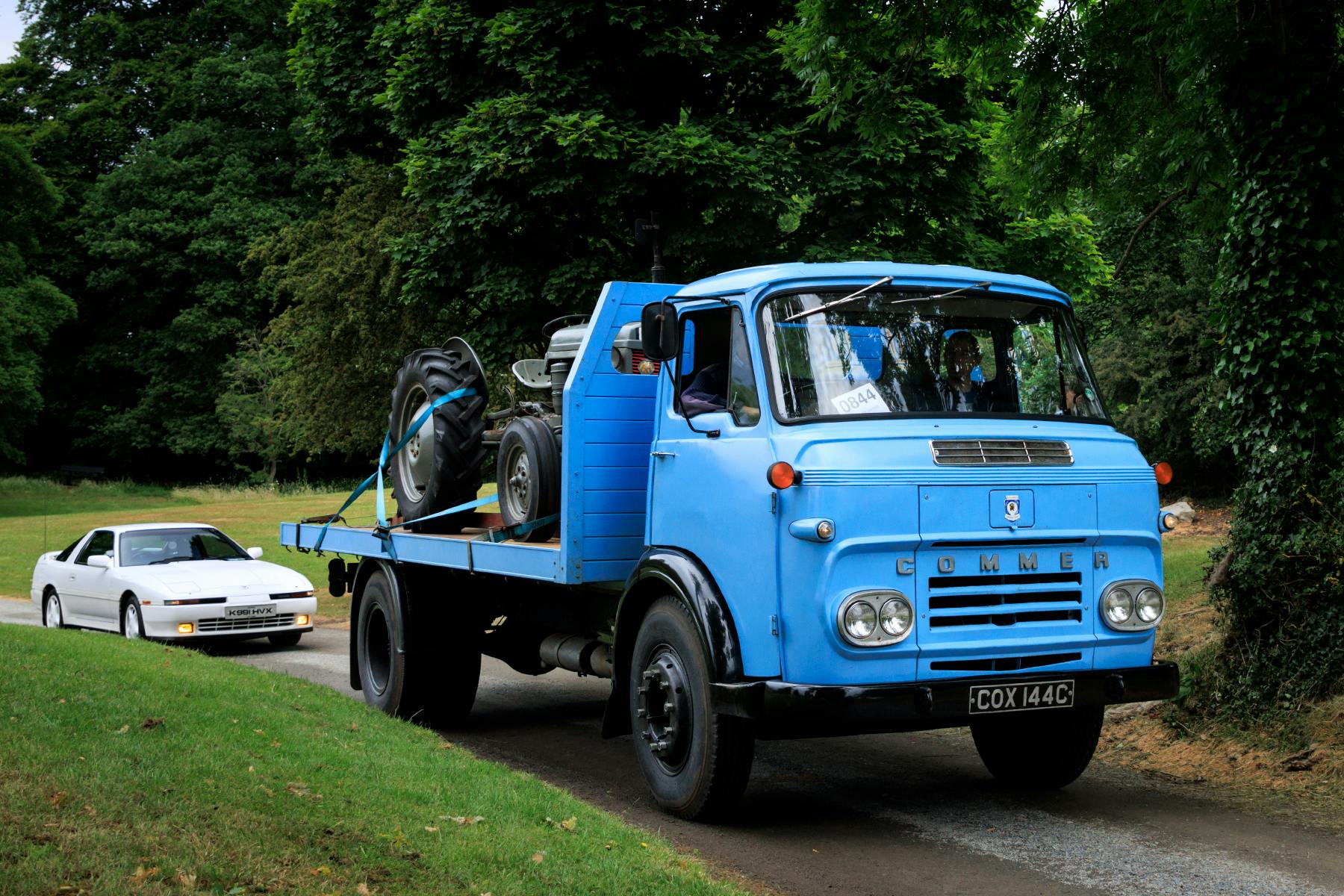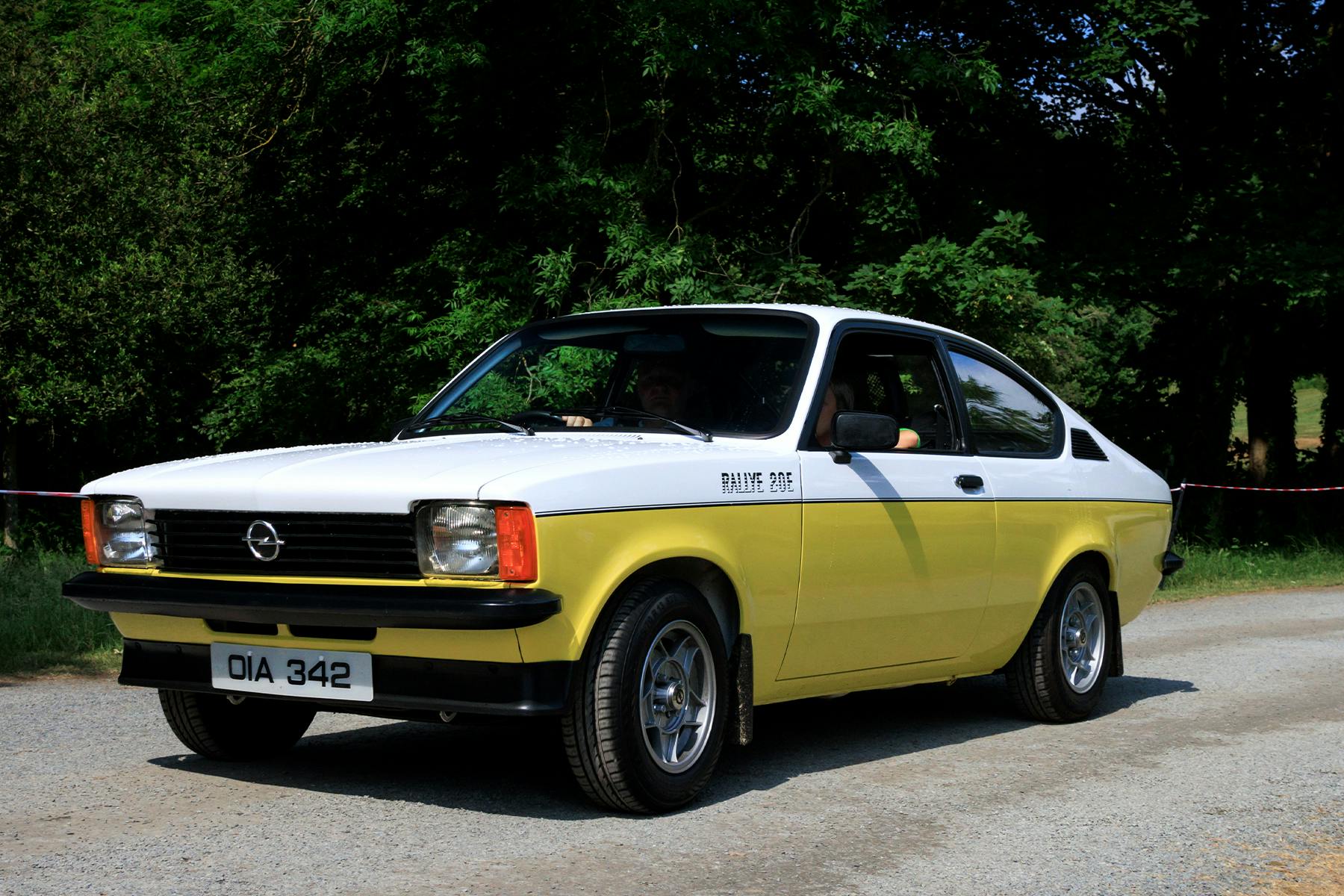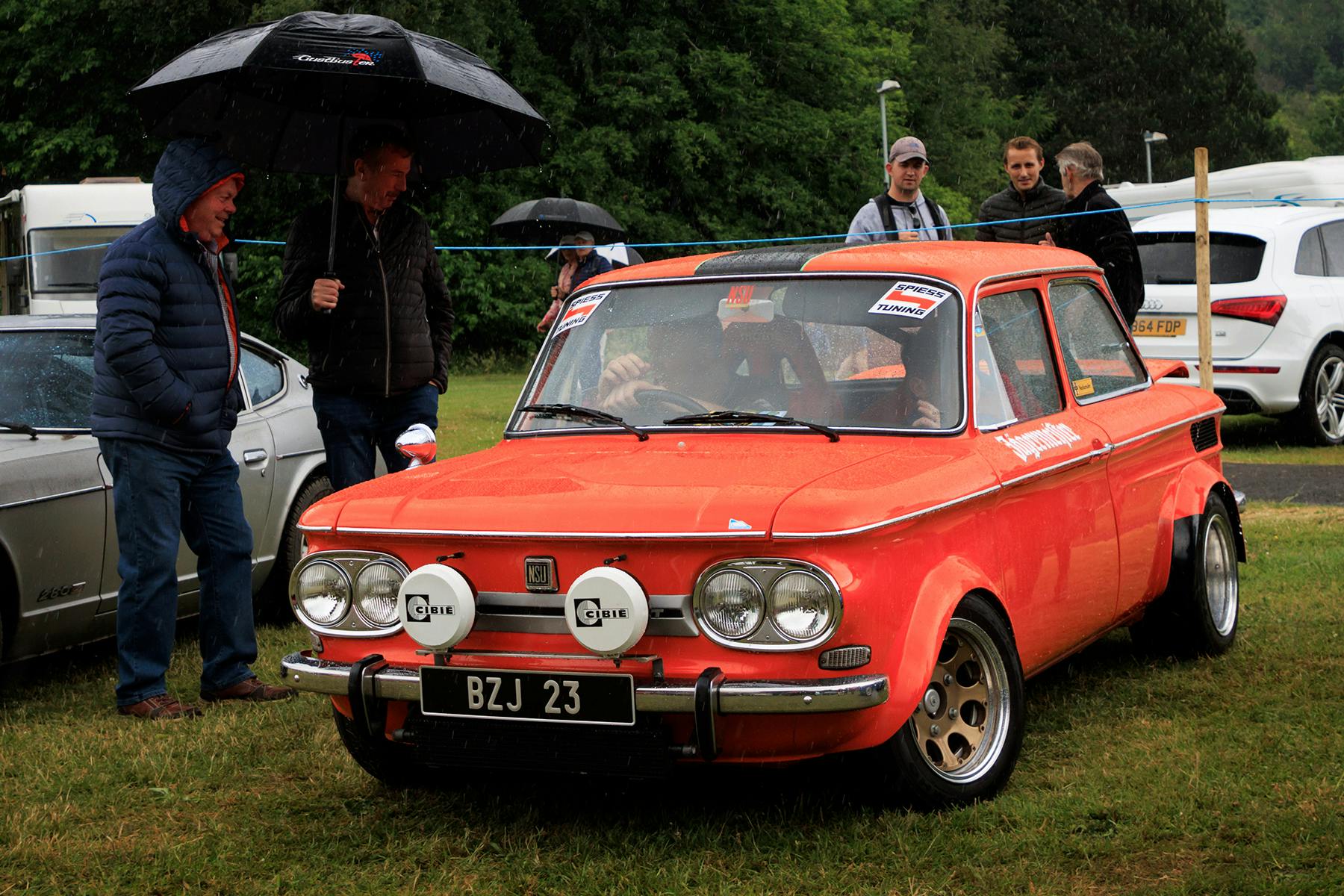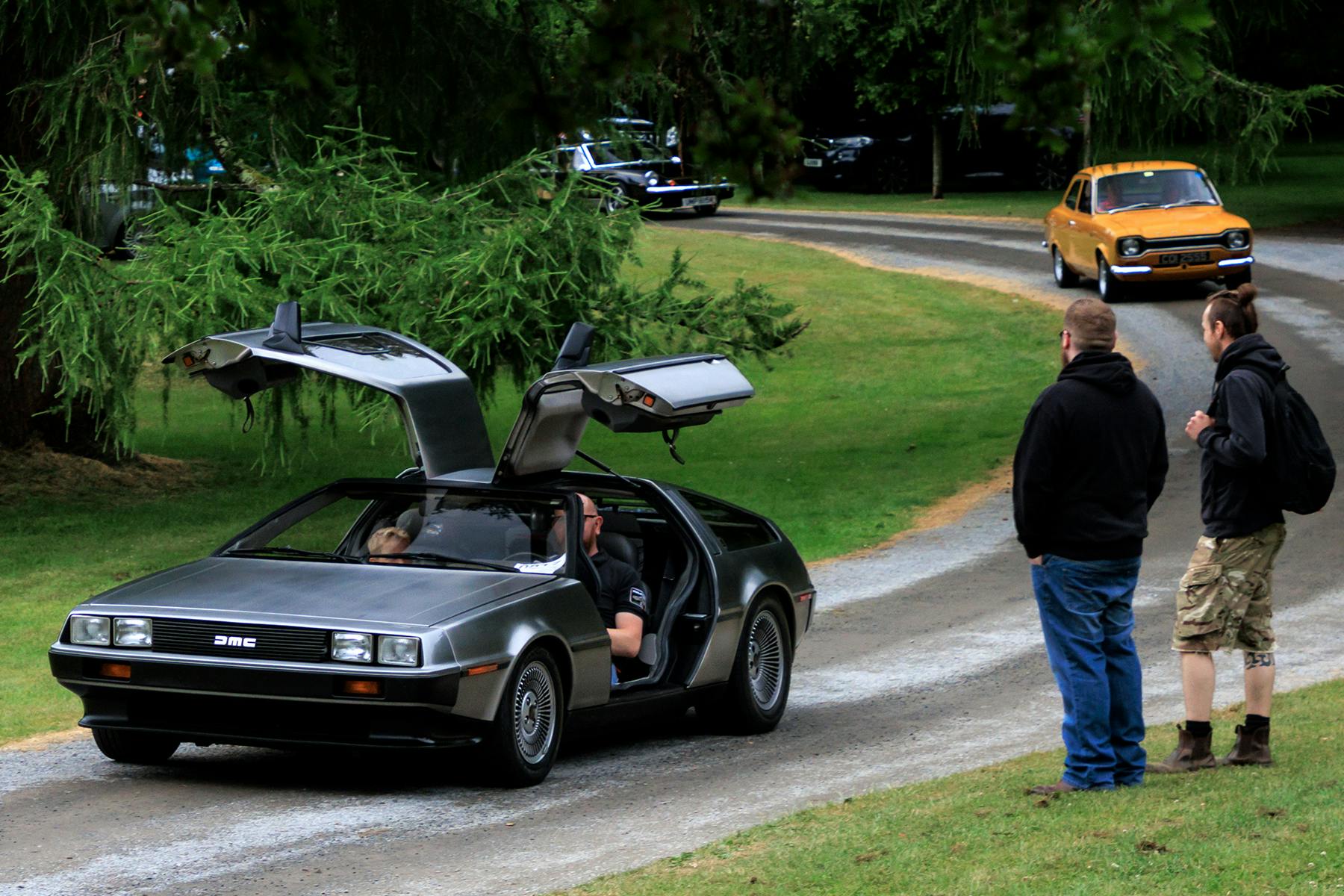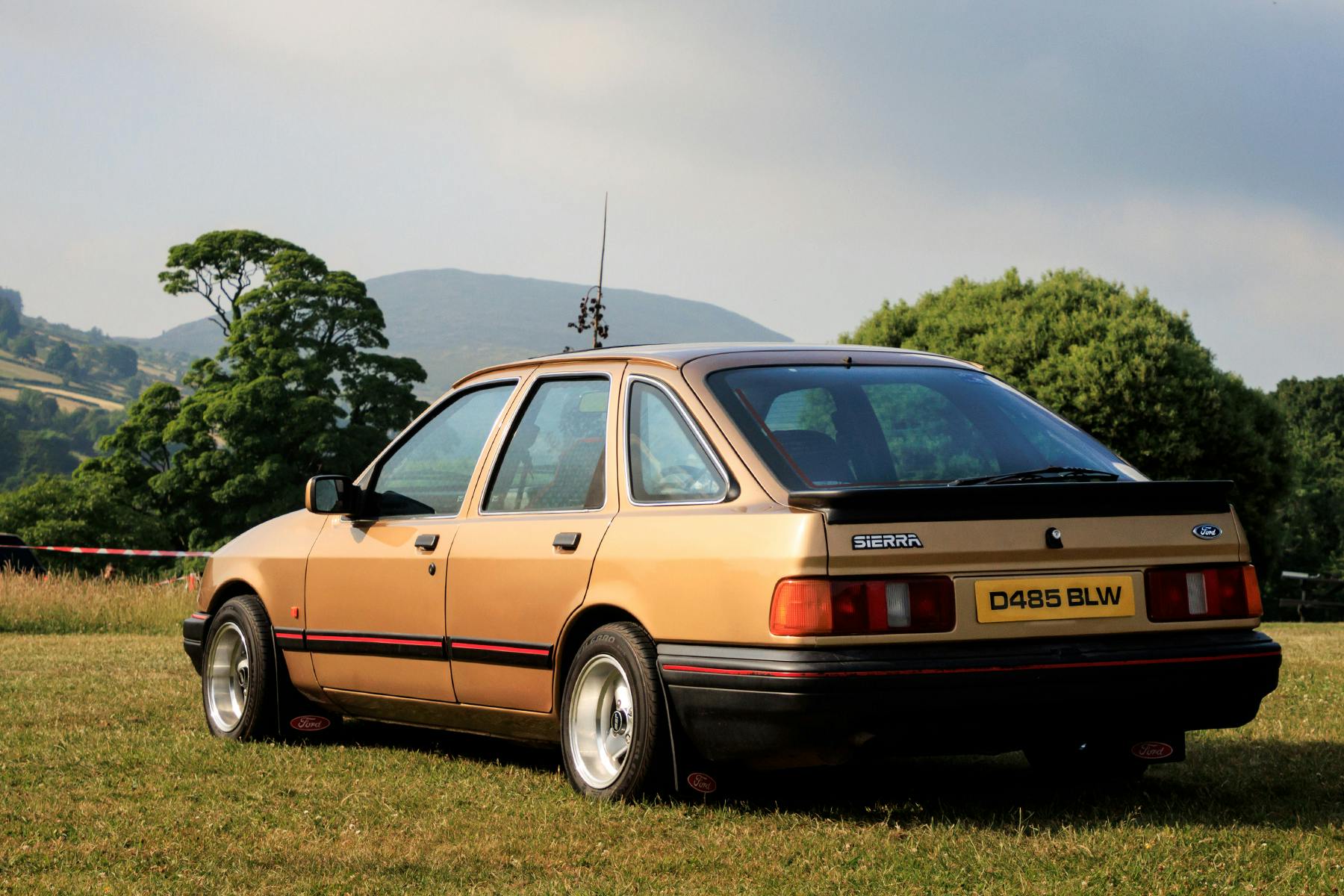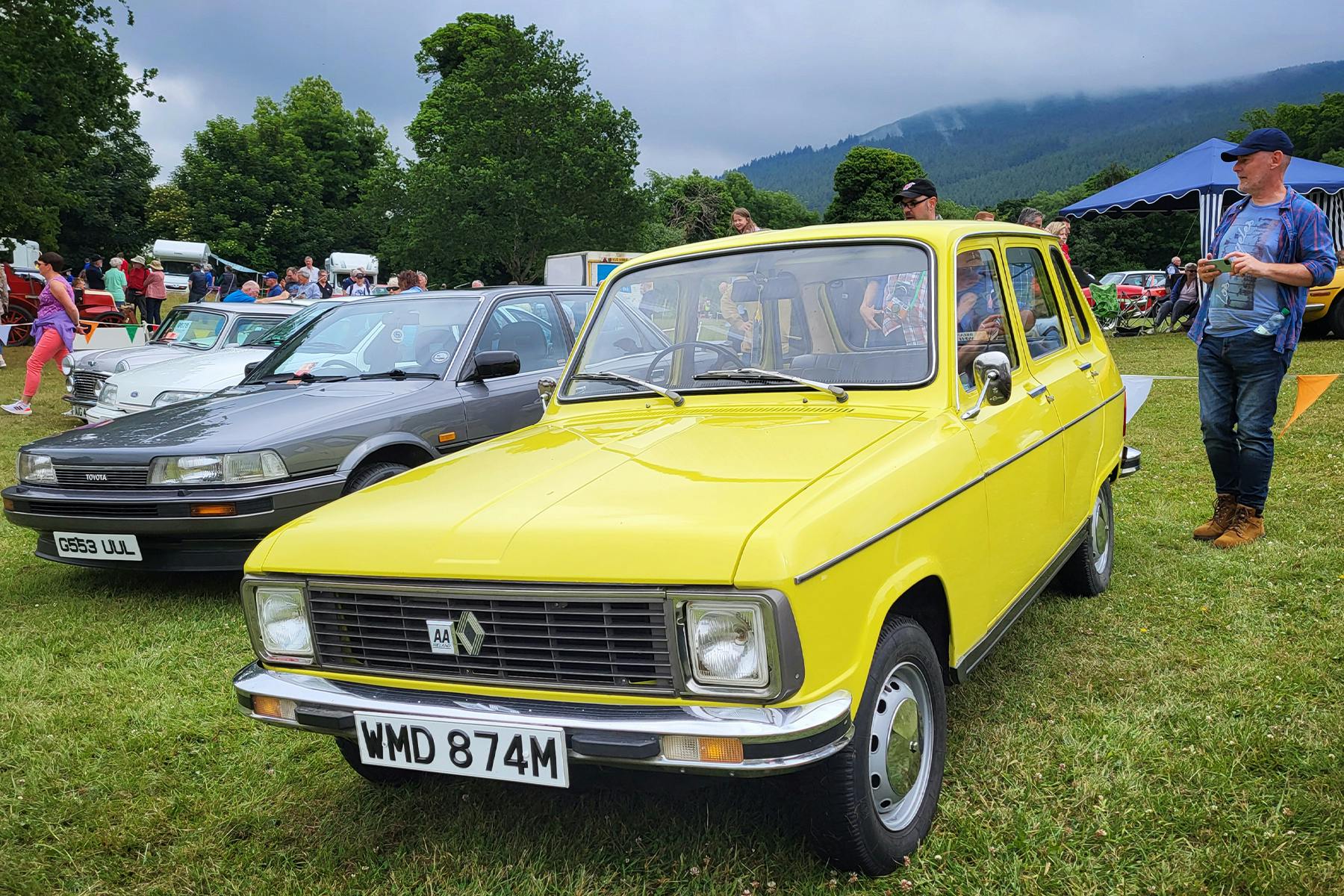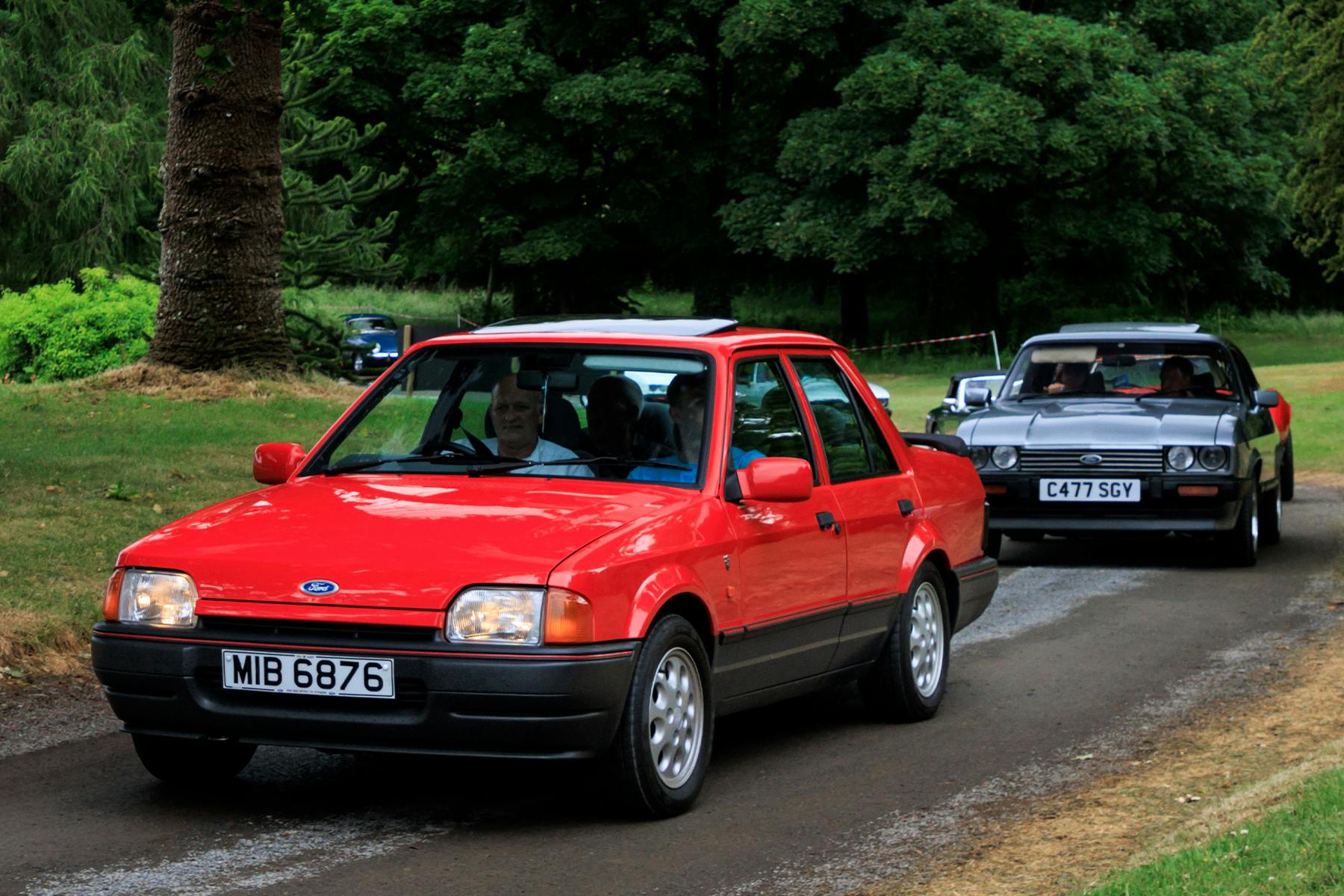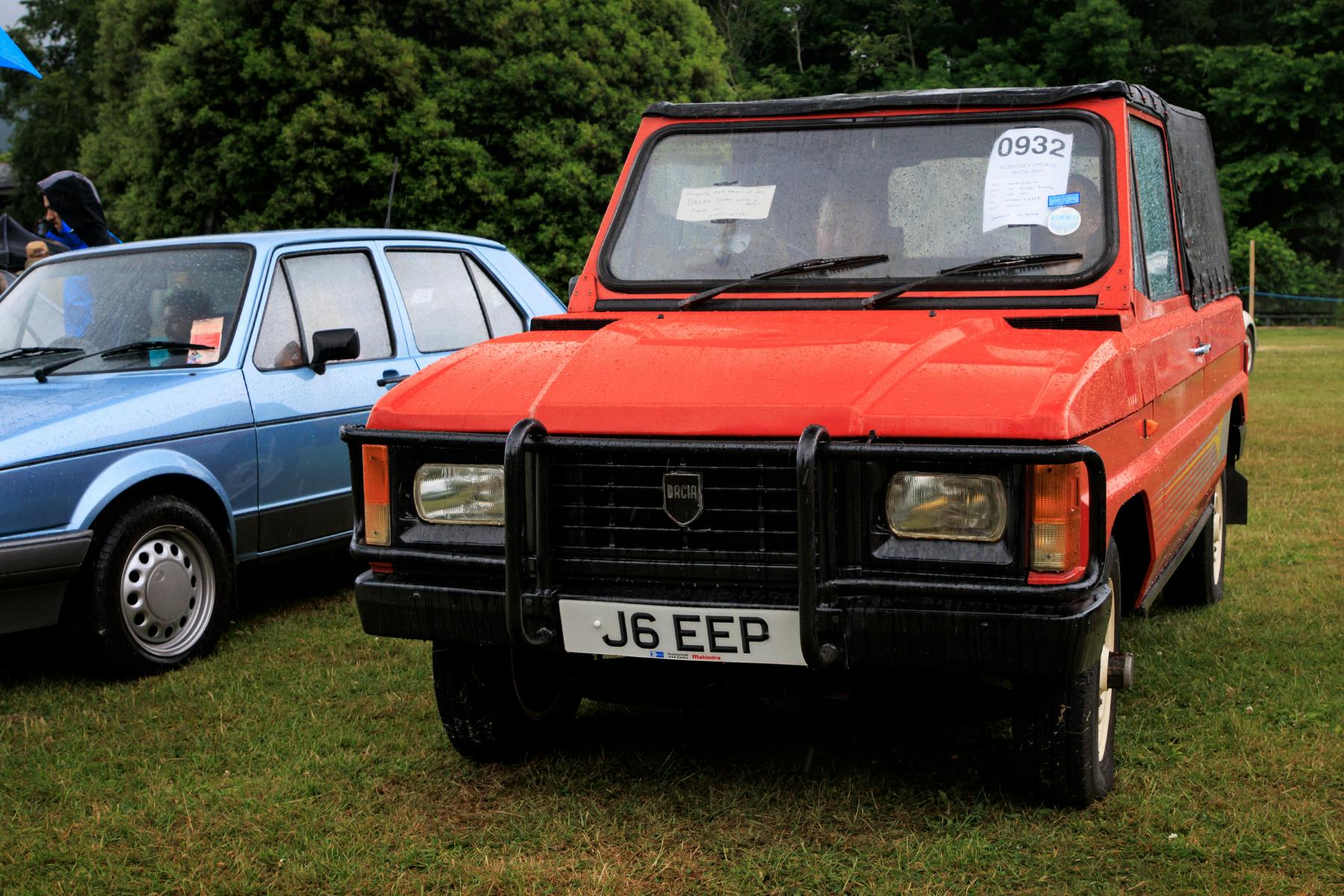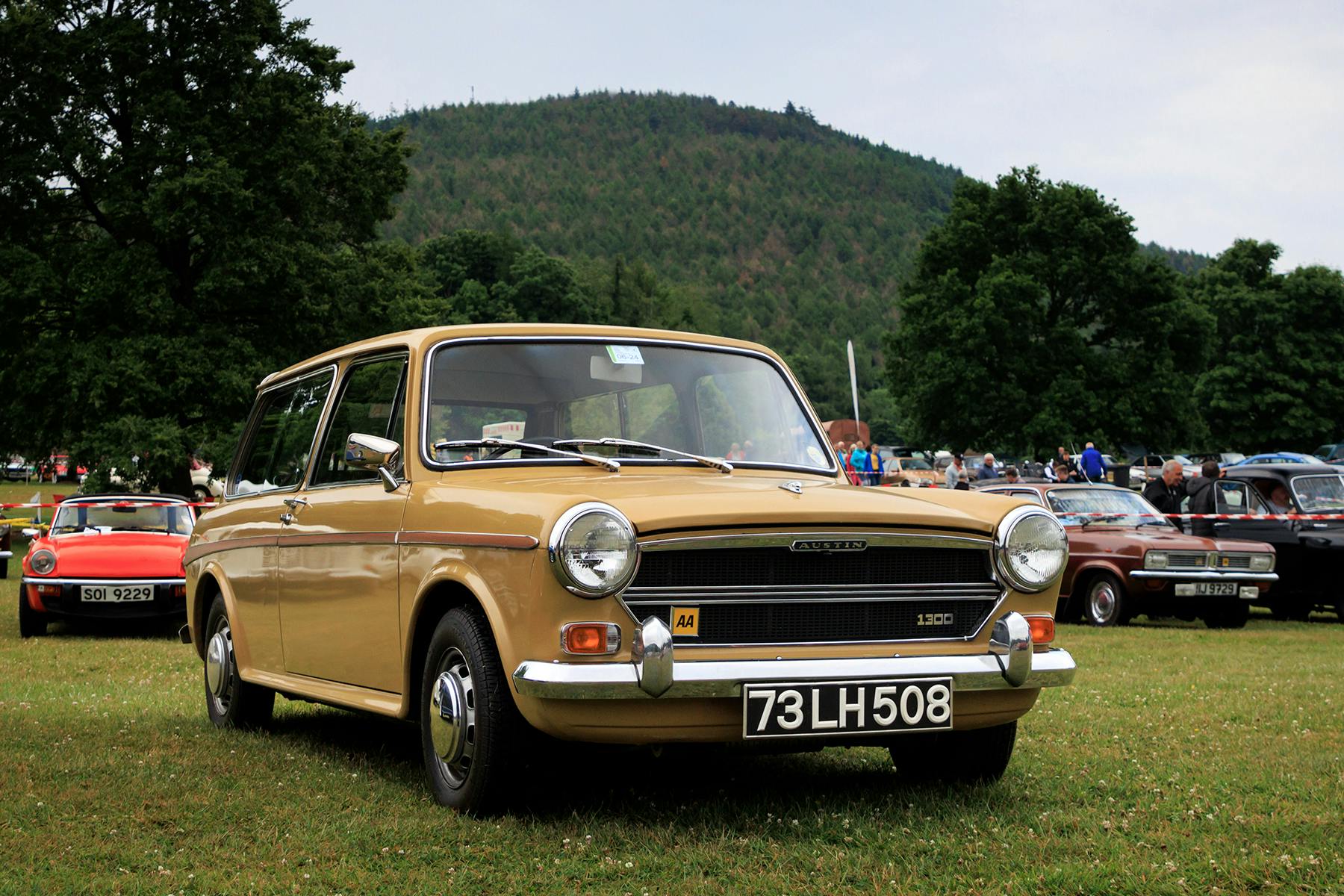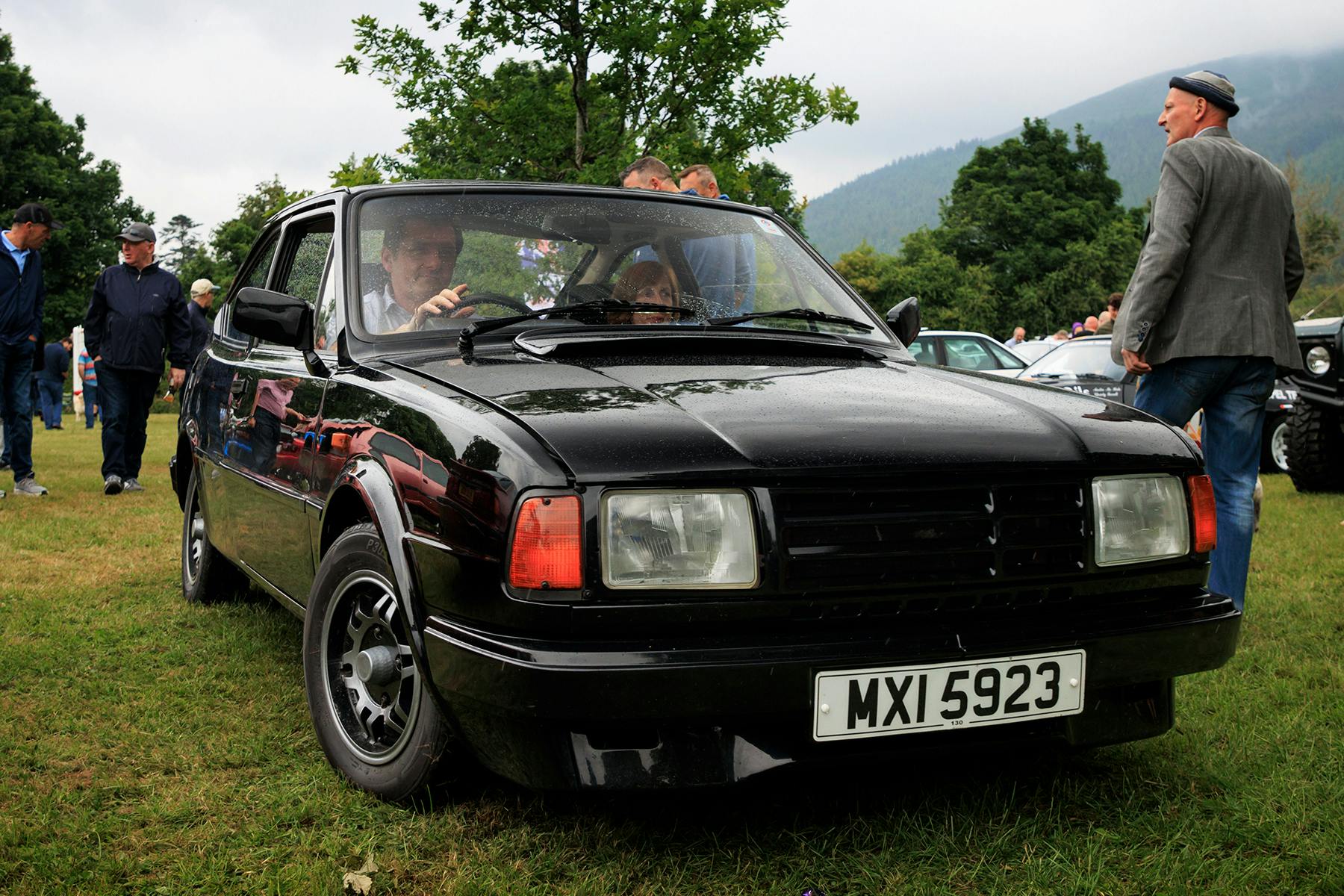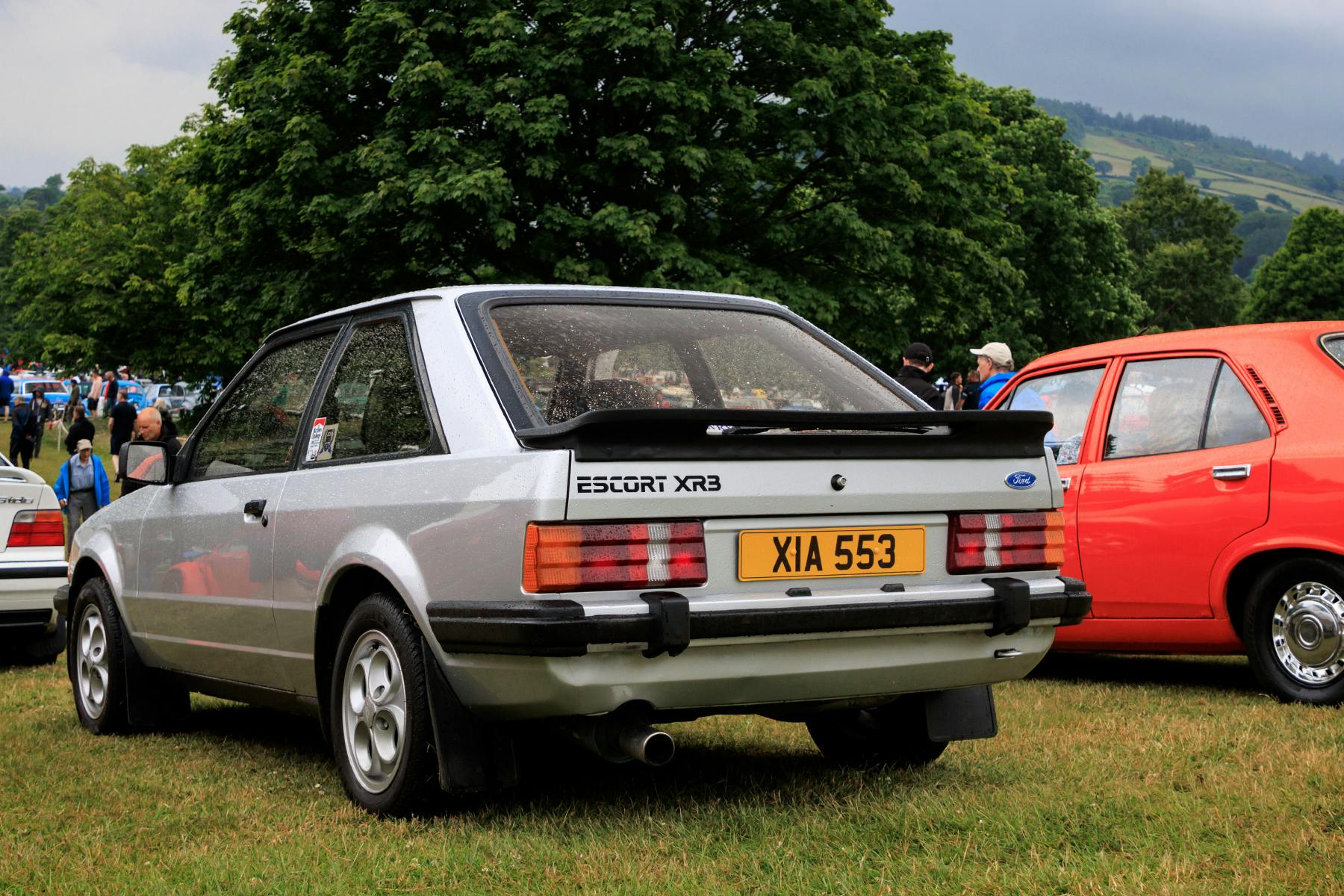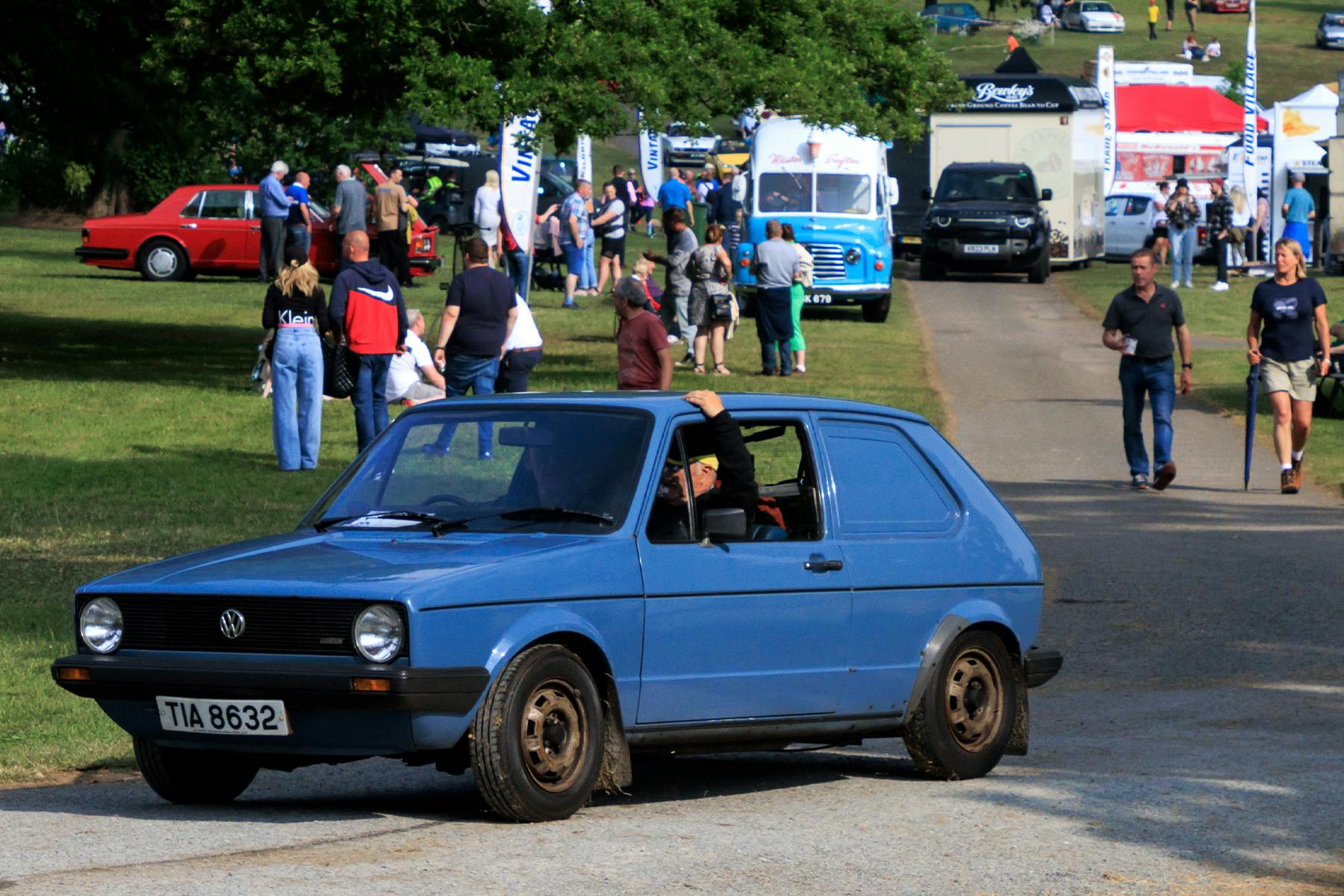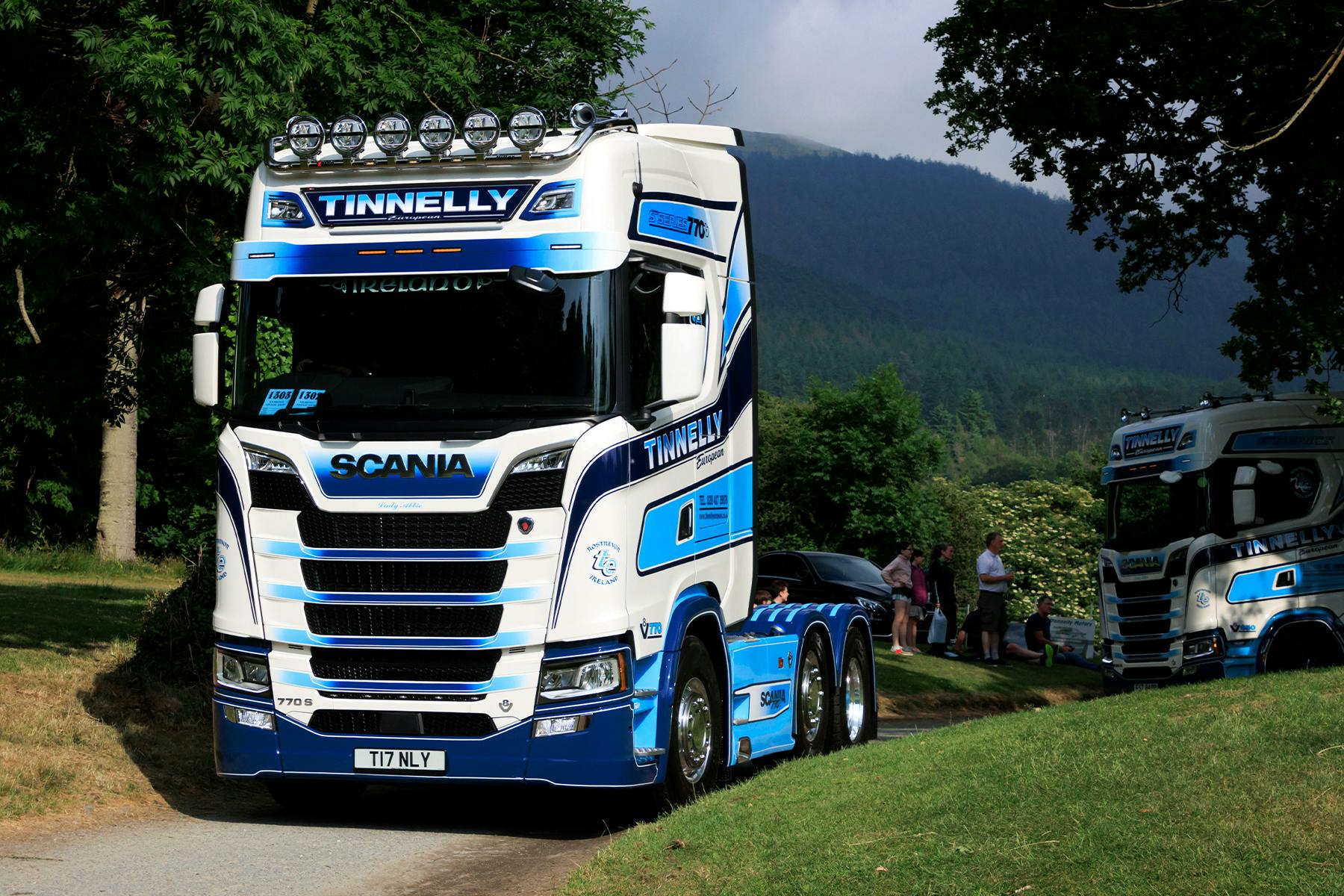Kilbroney Vintage Show: Classics and camaraderie in Northern Ireland
Even the night before the Kilbroney Vintage Show, I knew I was in for a treat. Weary from a sleepless nine-hour flight and a 75-mile drive, I rolled through the village of Rostrevor, where the show is held, and found classic car folks already gathering. A beautiful burgundy Wolseley 18/85 sat parked outside the Rostrevor Inn. A two-tone Opel Kadett Rallye 2-liter roared past, then a Toyota Starlet Turbo. Fatigue instantly melted into childlike enthusiasm.
Kilbroney is Northern Ireland’s largest classic-car show, and a can’t-miss event for locals, but I’d never heard of it until a few months prior to making it part of a much-needed vacation.
In part, that’s because Kilbroney isn’t anything like the Goodwood Festival of Speed or Villa d’Este Concours. A handful of exotics attend, but Kilbroney is a volunteer-run, proletarian, “run what ya brung” event where the proceeds go to charity. It’s also held in a public place, Kilbroney Park, nestled between Carlingford Lough and the Mourne Mountains.
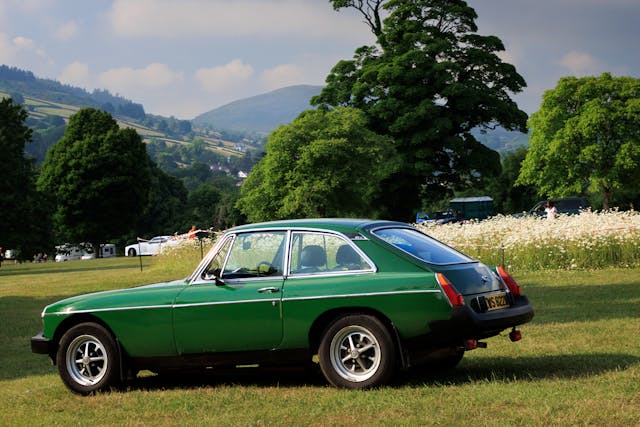
What makes Kilbroney truly special, however, is its variety. The attendees are a cross-section of two once-separate car markets, Northern Ireland and the Republic of Ireland, each with different tastes and regulations. With more than 1300 cars on hand, the sheer number of brands, vehicles, and niche models is dizzying.
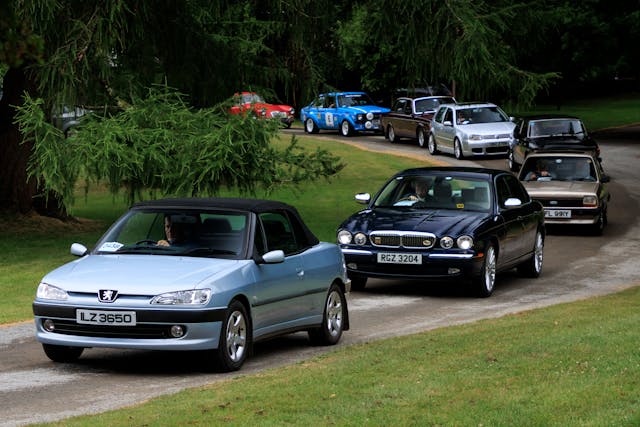
More importantly, the show also illustrates how cars bring people together in a place once notorious for division. Though a few newer cars end up at the show through club stands, Kilbroney’s cutoff for entry is 25 years. As it happens, this year is also the 25th anniversary of the Good Friday Agreement and referendum, which has brought lasting peace and transformed Northern Ireland as a tourist destination.
Thankfully, I had some ideal guides, both for the event and for the history of cars in both Irelands. Fiat adventurer Jim Magill, a Carrickfergus native, who has attended for 24 years, put me on to the show and also introduced me to some of the locals. They included Chris Gunning, who brought his Fiat Panda and has attended for years with his uncles Mike and Ken Smith; and Alex Farmer, who attended with his father in a Saab 99 Turbo.
Different Irelands, different cars

Except for Opel (sold in the Republic but not in Northern Ireland) and Vauxhall (vice versa), today’s Irish car markets are almost identical, but in the 20th century, things were different. Although Fords were popular everywhere, Northern Ireland’s car market was, like the rest of the U.K., dominated by British brands. That’s reflected in Kilbroney’s huge variety of British Leyland and Rootes models. Meanwhile, Magill says, “the Republic was a much more level playing field.”

In the 1970s, Fiat topped the Republic’s sales charts and had a higher market share in Ireland than anywhere but Italy. Renault’s Irish share was similarly its best outside of France. That same decade saw the arrival and rapid adoption of Japanese cars: Toyota sold its first car in Ireland in 1973, and by 1981 one in three cars sold in the Republic were Japanese.
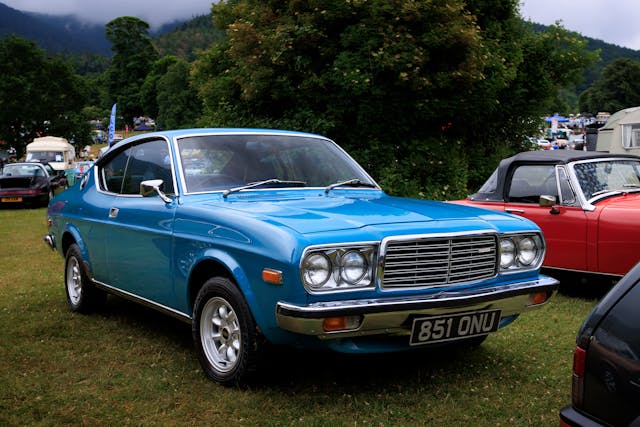
Some of these cars were also built in the Republic. Ford opened a factory in Cork in 1917 to first produce tractors and later cars, but the real action began after World War II. “The first Volkswagens to be built outside of Germany were assembled in Dublin in 1950,” says Magill. “I say ‘assembled’ since they were CKD [complete knock-down] kits, but that really kicked off local production.” Toyota, Fiat, Ford, Renault, Mazda, and even some British brands were built locally to circumvent stiff import tariffs.
“Joining the European Common Market did away with those tariffs,” says Alex Farmer. Although car production remained robust until the early 1980s, he adds, the dismantling of the tariffs ended the business case for the Republic’s car factories, though it also made car parts and other things much cheaper. “The last car built in Ireland was a Mazda 323 in 1984.” As Farmer told me this, another showgoer, a woman in her 60s, interjected: “I loved my 323 and I still drive a CX-5.”

Of course, there were also cars built in Northern Ireland. Keen-eyed sports car fans would have found a lone Irish Clan Crusader on the show field, but no show in Ireland would be complete without the Belfast-built DeLorean, and several attended. “I have an emotional connection to them because my father worked on the assembly line,” says Magill, “And let’s face it, they’re the world’s most famous car from Ireland.”
How the Kilbroney Vintage Show happens

In 1985, just a year after that last Mazda rolled off the line, Newry Lions Club members John Fox, Jerome Mullan, Drew Warde, and Sean Brannigan put together a car show to mark the centennial of the automobile. Back then, most classic car events were rallies and runs, explains Paula Braham, liaison for the organizing committee. “At the time it filled a distinct vacuum in the vintage car calendar as a static show.”
The show is run entirely by volunteers, Braham says, and the Newry, Mourne & Down District Council supports the show by allowing the park’s use. In terms of natural beauty, Kilbroney cedes nothing to Lake Como or Goodwood House. The proceeds go to charity, and in 2022 more than £25,000 (about $32,000) was raised.
The individual charities that benefit send volunteers on the day to marshall, and while that sounds like it could be chaotic, in practice it looked like a well-oiled machine. The show is large enough to have an enormous swap meet and a small traveling amusement park. Like many U.K. festivals, there are also heavy truck and tractor sections.
Braham says no date has yet been set for 2024, but the show usually happens on the third Saturday in June. “One unpredictable factor is our lovely Irish weather, which has caused last-minute postponements in the past.” Indeed, it did rain for a short bit on the day of, but it didn’t dampen anyone’s enthusiasm.
Cars and camaraderie
At first Kilbroney was very much a “vintage” show full of pre-1960 cars but, Magill says, “There’s been a generational shift, which you can see in shows all over the world, and cars from the 1970s to the 1990s have taken over,” leading to even more variety. Even so, the show featured several vintage rarities, including a 1901 Boyer, a 1927 Erskine, and a 1935 Triumph Gloria.
Since Kilbroney is dominated by mass-market models, many attendees have warm memories to share of cars they grew up with, and there’s little “that’s not really a classic” snobbery. Gunning attributes that to the same generational shift mentioned by Magill, but also the success of another U.K. event. “Shows like the Festival of the Unexceptional have done an excellent job of highlighting ‘ordinary’ cars that haven’t been given the attention they deserve,” he says, making those cars a more welcome part of other shows.

The effect has been magnified through social media sharing of “cars you don’t see anymore.” Indeed, it was seeing shots from the 2022 Kilbroney show (the first after a two-year Covid interruption) online that sealed my interest.
Gunning’s 1992 Panda, a 999-cc “Fire” model and not the now-sought-after 4×4, is as basic as they come. “Part of the Panda’s charm is that it’s practical utilitarianism at its best, with no extra frills or unnecessary parts. It has no power steering, no ABS, and the only electrical things are the instruments and lights.” Even so, it drew plenty of admirers, as did his uncle Mike’s 1985 Renault Fuego Turbo, parked nearby.
In this case, I was the person saying “I had one just like that,” only mine was a U.S.-spec car and not nearly as nice as his. In talking with Mike about the car, it turned out that we knew some of the same people in the U.K. and U.S. Renault clubs, proving that it really is a small world. Small, but growing.
Attendance has steadily risen over the years, but there was more cross-border participation after 1998, Magill says. “Nowadays it’s common for people to live and work on opposite sides of the border, but that was in its infancy then.” Indeed, as an outsider, the only thing notable about the “border” is having to change between euros and sterling, a far cry from the police checkpoints that were removed in the 1990s. For those who may have dated conceptions about this place, it’s also important to note what else was missing.
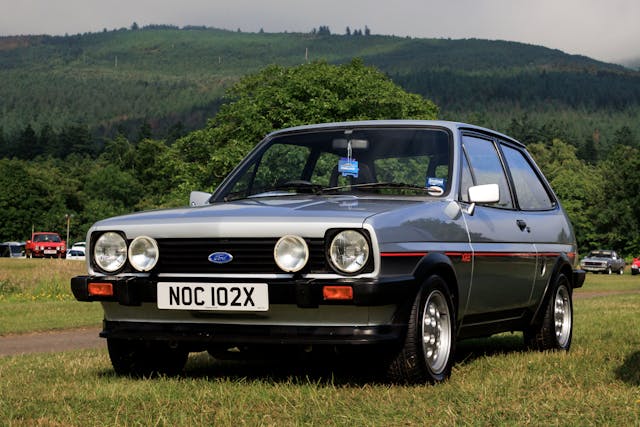
Notably absent from an event that specifically recalls the cars and times of the 20th century is any indication of historic political differences, including Union Jacks and Tricolors. “Ireland is addicted to flags and tat, but sectarianism has never really been reflected in the car scene,” says Magill. “Cars have always been extremely cross-community in Northern Ireland. There was never a ‘Catholic Ford Club’ or a ‘Protestant Ford Club.’ It was always just the ‘Ford Club.’”
“I’m paraphrasing Ellen Degeneres,” Magill says, “but we think everyone should be treated equally and judged only by the cars they drive.”
***
Check out the Hagerty Media homepage so you don’t miss a single story, or better yet, bookmark it. To get our best stories delivered right to your inbox, subscribe to our newsletters.

